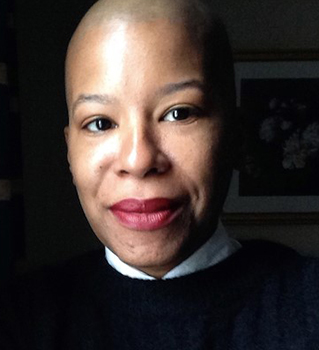The Alchemy Lecture, hosted by the Faculty of Liberal Arts & Professional Studies (LA&PS), seeks to harness the spirit of this ancient endeavour to foster new ways of thinking about the most pressing issues of our times.

In its original form, alchemy focused on combining different elements to yield a compound that would inspire change and, in some instances, grant immortality.
The new Alchemy Lecture, which aims to run annually, is hosted by LA&PS and is a multi-vocal model that brings together a constellation of three to four thinkers and practitioners from different disciplines and geographies to think together on the most pressing issues of our times. Spearheaded by the Canada Research Chair in Black Studies in the Humanities and York Professor Christina Sharpe, York University’s new Alchemy Lecture will debut Nov. 10 at 6 p.m.
All are welcome. This is a hybrid event. Registration is now open.
The lecture, titled “Borders, Human Itineraries and All Our Relation,” brings together four alchemists. They are: Dele Adeyemois, Natalie Diaz, Nadia Yala Kisukidi and Rinaldo Walcott.
Adeyemois is an architect and urban theorist conducting a Chase/ Arts and Humanities Research Council-funded PhD at the Centre for Research Architecture at Goldsmiths, University of London. His research intersects Black studies with urban studies to question how the rise of logistics is driving processes of urbanisation. Positioning slavery as the ghost in the machine of logistics, Adeyemois explores how circulations established in transatlantic slavery, at the foundation of modernity, live on in the contemporary production of space.
Diaz was born and raised in the Fort Mojave Indian Village in Needles, California, on the banks of the Colorado River. She is Mojave and an enrolled member of the Gila River Indian Tribe. Her first poetry collection, When My Brother Was an Aztec, was published by Copper Canyon Press. Diaz’s second collection, Postcolonial Love Poem is forthcoming from Graywolf Press in 2020. She is a Macarthur Foundation Fellow, Lannan Literary Fellow and a Native Arts Council Foundation Artist Fellow. Diaz teaches at the Arizona State University Creative Writing MFA program.
Kisukidi was born in Brussels, from a Congolese father and a Franco-Italian mother. She is associate professor in philosophy at Paris 8 Vincennes-Saint-Denis University. She was vice-president of the Collège International de Philosophie (2014-16) and is a member of the editorial committee of Cahiers d’études africaines (EHESS). Kisukidi is specialized in French and Africana philosophy. Her publications include Bergson ou l’humanité créatrice (CNRS, 2013), Dialogues transatlantiques (Anacaona, 2021) co-written with the Brazilian philosopher Djamila Ribeiro, and many articles in philosophy.
Walcott is the director of Women and Gender Studies Institute and an associate professor at the Ontario Institute for Studies in Education, both at University of Toronto. His research is in the area of Black Diaspora Cultural Studies, gender and sexuality. He is the editor of Rude: Contemporary Black Canadian Cultural Criticism (Insomniac, 2000) and is the co-editor with Roy Moodley of Counselling Across and Beyond Cultures: Exploring the Work of Clemment Vontress in Clinical Practice (University of Toronto Press, 2010). Additionally, Walcott is co-editor of No Language Is Neutral: Essays on Dionne Brand in Topia: The Journal of Canadian Cultural Studies. He is also the author Queer Returns: Essays on Multiculturalism, Diaspora and Black Studies (Insomniac Press, 2016) and currently completing The Long Emancipation: Moving Towards Freedom.


